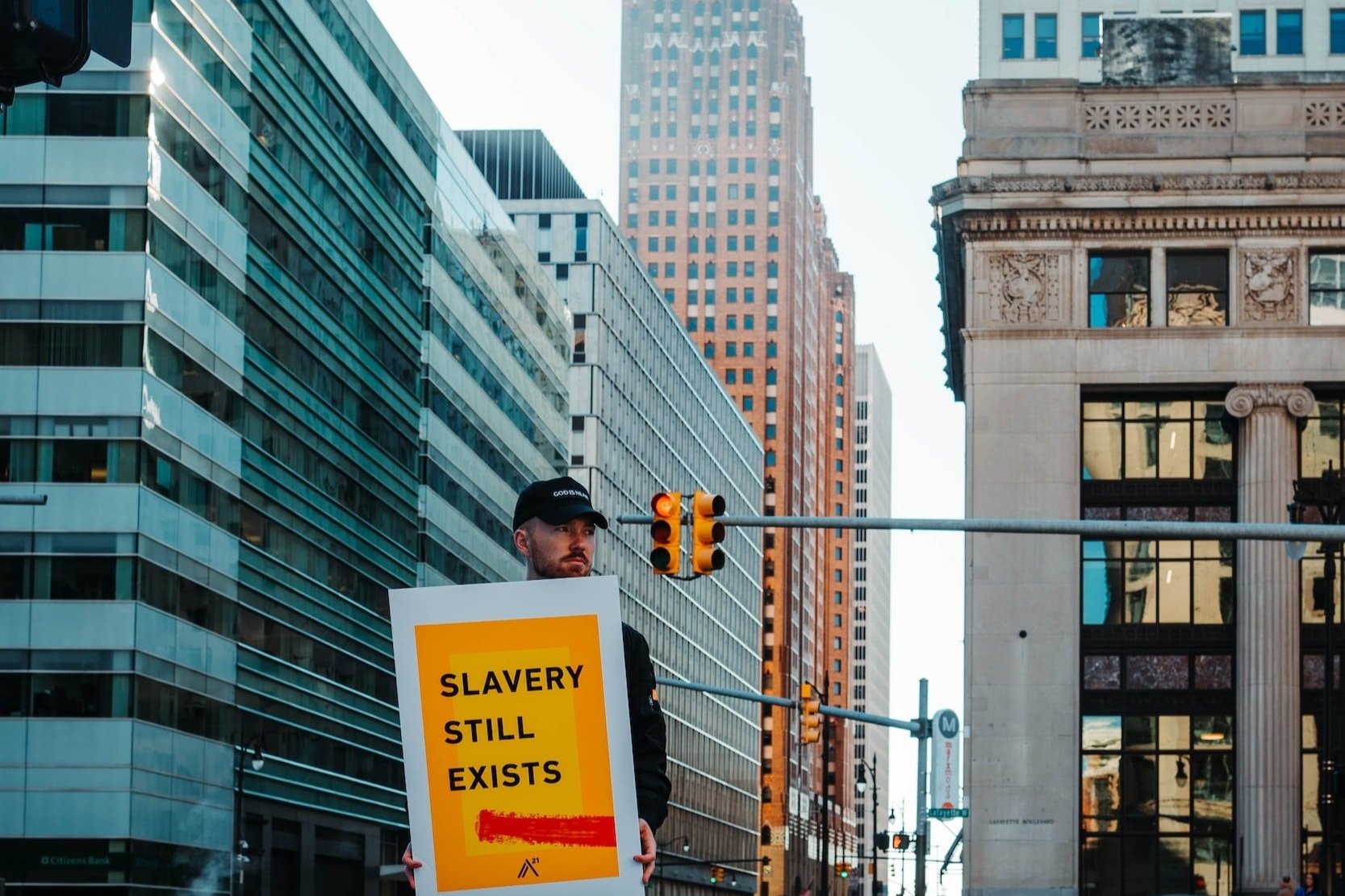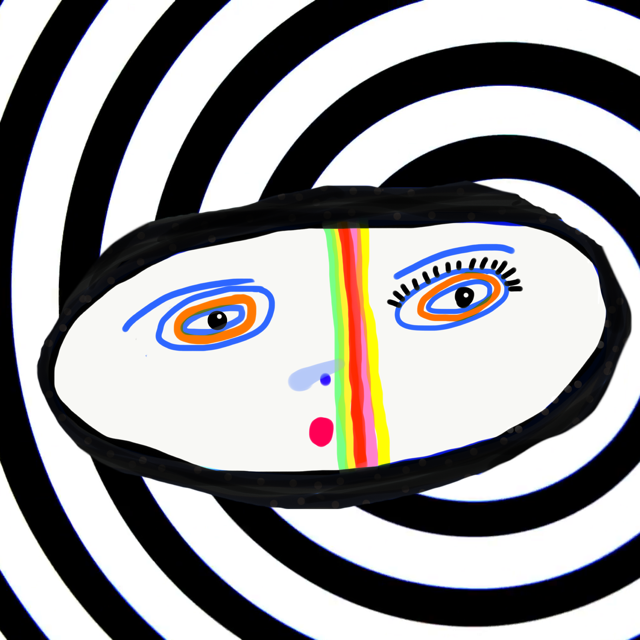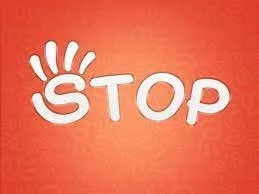
Modern Slavery
On this page:
What is Modern Slavery?
Spot the signs of Modern Slavery
Known modern slavery issues
The size of the problem
Sources of support
Take action
Coming soon
What is Modern Slavery
Modern slavery is an umbrella term, which encompasses several types of exploitation, including forced labour, human trafficking and forced marriage.
Forced marriage is included because the conditions are almost indistinguishable from trafficking. This should not be confused with arranged marriages to which individuals have freely consented.
Slavery was first defined by the League of Nations in 1926 as “the status or conditions of a person over whom any or all of the powers attaching to the right of ownership are exercised.” In short, it’s the control of one person or persons over others (and is considered a serious criminal offence in most laces). The concept was first addressed in international law in 1956 (through the UN) and covers practices similar to slavery, including debt bondage, serfdom, and forced marriage.
Read more: UK Law (2023)
Government leaflet on rights for victims of modern slavery in the UK: Download leaflet
Spot the Signs of Modern Slavery
-

About that job in Spain....
A warning regarding jobs ‘propping’ (propaganda) which look like a way to spend a season partying in Spain: you might end up in custody rather than a bikini on the beach (or swim shorts!)
i spills the beans on the young Brits facing modern slavery and sexual assault in Europe’s club scene.
-

Nail Bar Workers
The Guardian reports on police raids on nail bars, where organised crime rings have trafficked girls, mainly Vietnamese, into modern day slavery in nail bars.
The button below will take you to the old article, but sadly the problem is still here, as can be seen in the Guardian’s more recent article covering a raid: What does your £10 manicure really cost?
-

The Cult with a Modern Slavery Issue
|t’s been alleged that the Word of |Faith Fellowship amongst other things, trafficked Brazilian workers effectively into modern slavery.
Article in Citizen Times (AP)
-

Japan's Comfort Women
Japan’s ‘Comfort Women’ were - and remain - a horrendous example of state enforced slavery, with women used to ‘comfort’ soldiers and attend to their ‘needs’.
The Brutal History on History.Com
A campaign has been started to recognise what they endured.
-

'Unseen' victims
The charity Unseen works with victims of modern slavery.
With permission, they have told some of their stories on the Unseen website:
Video: The exploitation of foreign domestic workers
In 2022,at least 1,800 people thought to be victims of domestic exploitation were referred into the UK's modern slavery protection system - yet at the same time lawmakers are looking at strict new immigration rules that could mean they have no legal safety net at all.
Arno Pedram, of France's sister Infomigrants site, takes a look at how foreign domestic workers end up being exploited in the UK.
The size of the problem:
Forced labour accounts for nearly one of every 150 people in the world.
· No government or international agency truly knows how many people are victims of human trafficking - it’s illicit activity, hidden, often in full sight. Moreover what they include in statistics varies. Some agencies estimate 2.5 million victims (UNODC), others 27 million (U.S. State Department).
Medaille Trust, 2023 estimates that 40.3 million people are trapped in some form of modern slavery worldwide. Unseen charity - experts in the field - puts this figure at 50 million.
The 2021 Global Estimates indicate there are 49.6 million people living in situations of modern slavery on any given day, either forced to work against their will or in a marriage that they were forced into - 27.6 million of those in modern slavery and 22 million in forced marriages. The problem is worsening - their 2021 figures show about 10 million more men, women, and children forced to work or marry since the estimates were released in 2017.
· There are more than 300 thousand people are currently being trafficked. in Texas alone. (Source NOMI Network, 2023)
· 136,000 victims of Modern Slavery are estimated to be in the UK (6,993 potential victims found in 2018) (Source Medaille Trust, 2023), although the UK Government estimates this at 10 thousand (source Unseen charity). The top three source countries for victims found in the UK were: UK, Albania and Vietnam. (Source Medaille Trust, 2023).
· 38% of trafficked women are forced to marry without their consent. (Source NOMI Network, 2023)
· 62% of trafficked women are victims of forced labour, including bonded labour and debt bonds, domestic servitude, commercial sexual exploitation, and child labour. (Source NOMI Network, 2023)
· India is the home to 8-20million people subjected to modern day slavery. (Source NOMI Network, figures pre-2020)
(Walk Free (https://www.walkfree.org/) is a good source of statistics.)
Sources of Support
-
This information compiled by Infomigrants, part of France 24, explains how you might be able to seek protection: Government Protections for Abused Foreign Domestic Workers
-
Where and how to report if you suspect someone is being subjected to modern slavery: Crimestoppers
-
The Gangmasters and Labour Abuse Authority with investigate reports of unlicensed gangmasters, and those in breach of their legal duties: Report Issues
-
Report a Health and Safety issue online: HSE site (Health and Safety Executive)(
Note that they ask for personal details, but there is also a question asking about any danger you are in, especially regarding other people.
If you don’t give details they will not be able to inform you of progress, but you should still be able to report.
-
CAAGe: Sources of Legal Support
-
https://www.gov.wales/live-fear-free/slavery
Call: 0800 01 21 700
Lines are open 24 hours a day and are free from landlines and most mobile phones.
-
If you believe you are - or someone you are aware of is - a victim of modern day slavery/trafficking, Migrant Help may prove a great place to report to/seek help if the victim is a migrant (as is often the case).
Whilst they do recommend using the Salvation Army service (below), this link will take you to a great information page with a variety of places to call: Migrant Help, Modern Slavery
-
The Modern Slavery Helpline and Resource Centre is working towards a world without slavery by supporting, equipping and influencing. Tel: 08000 121 700
-
Ni Direct makes it simple for victims to find out their rights, Get help, compensation, advice and support.
NI Direct: Help for Victims of Modern Slavery and Human Trafficking
-
The Salvation Army is a Christian organisation that offers, amongst other things, specialist support for people who are being subjected to modern slavery in England and Wales: Salvation Army, Modern Slavery
(Or call confidential referral helpline 0800 808 3733)
-
Unseen is working towards a World without slavery.
Modern slavery & exploitation helpline phone number: 08000 121 700
(Open 24 hours, seven days a week, 365 days a year)
-
Victim Support helps victims of crimes in many ways, including helping to prepare for either reporting to the police or attending court.
-
Victims of modern slavery may be entitle to some compensation under the UK’s criminal compensation scheme: the scheme
Download the ‘Stop’ App
-
Follow your ‘gut’ and if you sense something is amiss, report it. You may be wrong, but you could also save a life: About the app
Grooming Gangs
-
CAAGe takes a closer look in response to furore after furore in the UK press: Grooming gangs
Modern slavery and UK Law
-
CAAGe looks at government guidance on what modern slavery is
Modern Slavery Defined
Modern slavery: how to identify and support victims
-
UK Government guidance: signs that someone may be a victim of modern slavery, the support available to victims, and the process for determining whether someone is a victim. This guidance is aimed at any organisation helping victims of modern slavery : Guidance
Coming soon:
Spanish Agricultural workers (and the UK supermarkets supply chain)
Additional case studies
Legal revision
Additional sources of support
Avoiding being groomed into slavery





